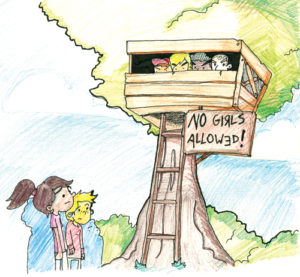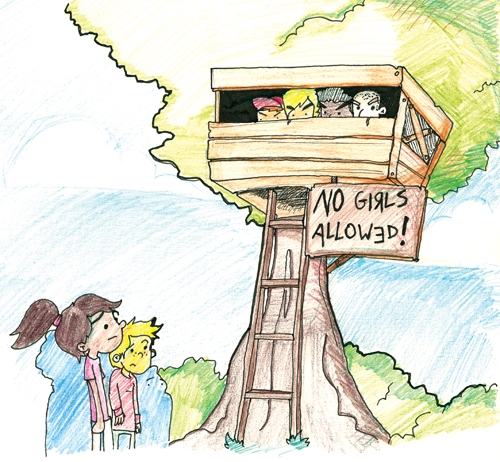Science & Technology Editor
@ernestreid

The internet itself is not sexist, but people who use it are. That’s what Megan Glenwright is discovering. Glenwright studied at the University of New Brunswick examining how sexism works on social news website Reddit for her thesis.
Glenwright says it’s no longer a debate of how hostile the internet is towards women. She points to hate emails threatening female bloggers with rape, Facebook pages comparing rape to “surprise sex,” and Twitter trends like “reasons to beat your girlfriend.” Misogyny and women’s suffering are reduced to common punchlines online.
Sexism is a huge problem online, just as it is offline; it presents itself in different forms depending on the medium. Any issues on Reddit are part of a larger culture of hate. Being a woman is often used as an insult online, Glenwright points out, and being the opposite of a man means being lesser than a man.
“The internet is hostile towards women,” she argues, “because of an underlying hatred of women.”
Online sexism is apparent; offline, it’s more subtle. The anonymity of the net also contributes to misogynistic behaviour. Anonymity, Glenwright argues, takes away the human reaction from what men say. Men online do not see the hurt or fear sexist comments cause their victims.
Activity in one realm supports patriarchal thinking in the other. “People making sexist comments online,” Glenwright argues, “are likely to also hold these same attitudes offline too.”
Uttering sexist comments in real life only hurts those around you. The pain caused is relatively local. Posting sexist comments online is more permanent. Online sexism, Glenwright says, is “essentially there forever, for everyone to observe.” The sexist comment persists, continuing to hurt other women.
Glenwright says if the internet is going to be a more accepting space for women, people need to talk about online misogyny, on the web and in real life. These attitudes need to be called out and attention drawn to them.
It needs to be explained, Glenwright says, that sexism is not okay and that it hurts everyone involved, online or off.




This is an interesting, but too short of an article. It seems like it would be relatively easy for women to address sexism issues online, but as we see every day, it’s often not the case.
Common sense would dictate that if enough people comment online about a company’s sexist behaviour the company should act accordingly. Unfortunately too, what one person thinks is sexist, another considers acceptable.
This company for example, GoldSeal https://www.facebook.com/goldseal happily depicts only women in housekeeping roles like cooking, cleaning, shopping, and raising kids. There isn’t a man on the entire site taking care of his family.
Women seem to love the site, and it’s been online for years, but no one seems to mind that the company, which is huge, sends a 1960’s message of, “A woman’s place is in the home, barefoot and pregnant.”